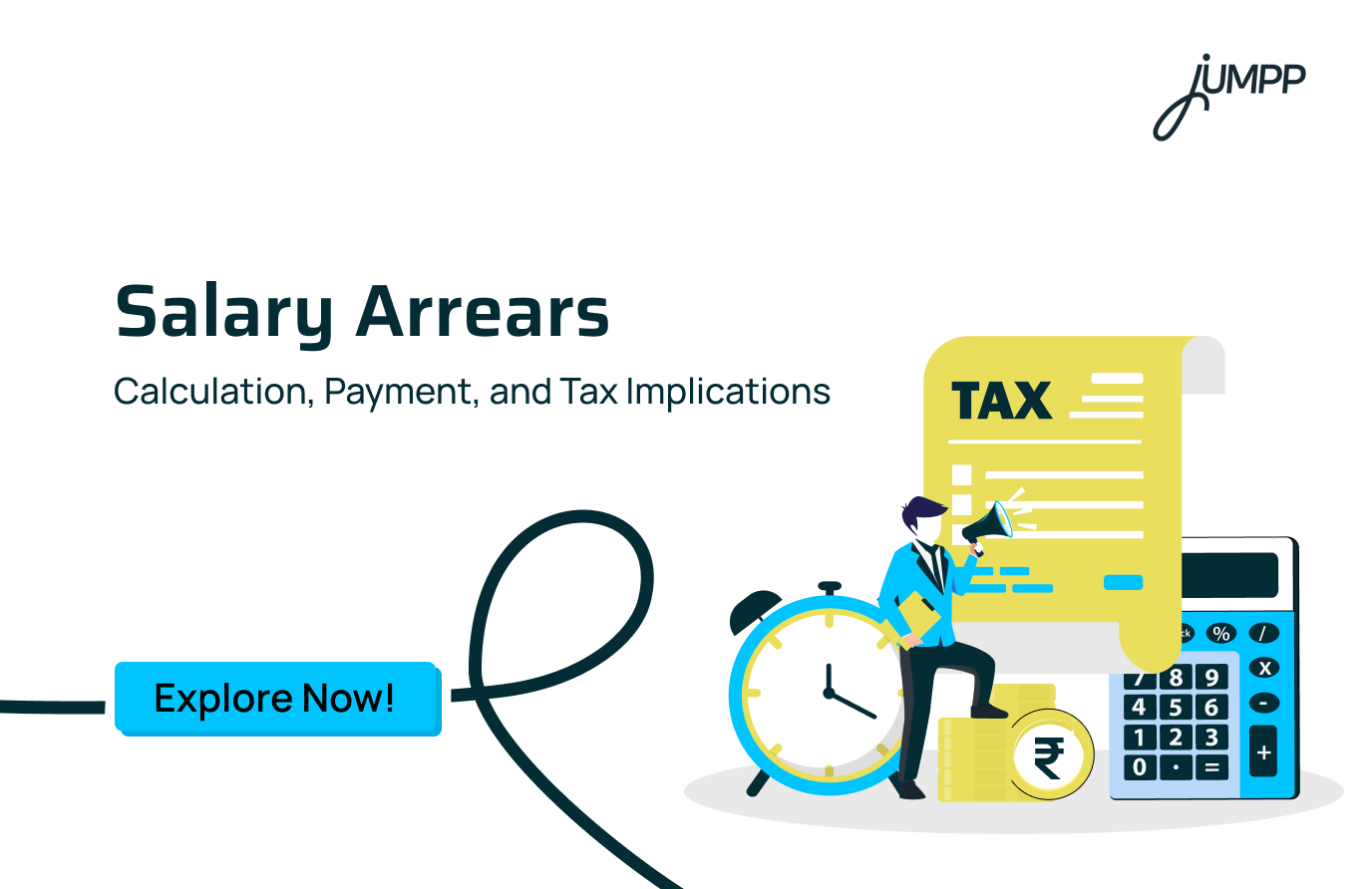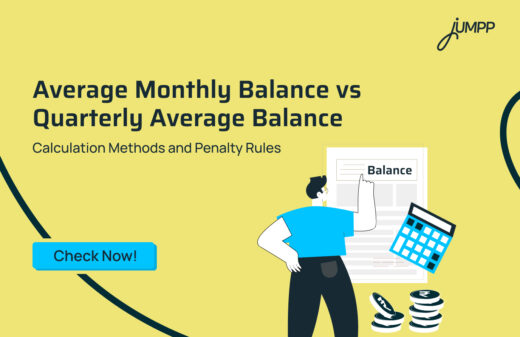What are Arrears in Salary? Common Causes, Calculation, and Tax Implications

There can be unexpected situations when your employer does not pay your full salary on time. When the unpaid amount is paid in later months, it is referred to as salary arrears. Arrears are past-due payments that represent money you have earned but have not received when it was due. Whether caused by delayed promotions, payroll errors, or retroactive policy changes, salary arrears correct past underpayments and ensure fairness.
How to calculate arrears of salary?
Let’s learn!
What are Arrears in Salary
Salary arrears are payments you receive for work you’ve already done, but you weren’t paid for at the right time. They usually appear when there is a salary hike, a promotion, or any kind of pay adjustment that takes effect retroactively.
The Arrera amount is the difference between what you should have earned in the past and what you were actually paid, which is delivered to you in a later paycheck.
Basic Arrears Meaning
Unlike a simple delayed paycheck, basic arrears payments arise from adjustments that change what the employee was actually owed as a part of their salary or wages!
Confused between salary and wages? Discover the key differences, their tax impact, and which one applies to you.
What is the Arrear Amount
The arrear amount is the exact figure of unpaid wages accumulated over a specific period. It represents the difference between what the employee was paid and what they should have received.
On a payslip, this amount is often listed separately.
What is an Arrears Payment
An arrears payment is when the company actually pays out this accumulated amount. Most often, it is added to the next regular paycheck, but some organisations issue it as a separate payment. Its purpose is to correct past underpayments and make sure the employee receives what was rightfully theirs.
What Are the Common Causes of Salary Arrears?
Salary arrears usually arise when payments from past months are corrected or adjusted.
Some of the most common reasons include:
- Delayed Salary Hikes
A pay raise is approved, but the process takes time to reflect in the paycheck. The arrears cover the difference for the months when the new salary was supposed to be paid but wasn’t.
- Payroll Errors
Even in the most organised payroll systems, human errors can occur. A calculation mistake, forgetting to add a bonus, or a misrecorded attendance sheet can all lead to underpayment. When discovered, these gaps are corrected as arrears.
- Late Reimbursements
Sometimes expenses submitted by employees are not reimbursed in the expected month. These delayed reimbursements are paid later as arrears.
- Unpaid Overtime
Extra hours logged but not accounted for in the regular paycheck eventually show up as arrears.
- Retroactive Policy Changes
Changes in salary, benefits, or allowances due to new company policies, government directives, or pay commissions are often applied retroactively. In such cases, arrears reflect the difference owed because of these adjustments. This is especially common in public sector roles, but can appear in private companies as well.
How Salary Arrears Work
Here are two ways in which your salary arrears function-
- Retroactive Pay: When a salary increase or correction applies to an earlier period, you are owed the difference for those months.
It is as if your past pay is being corrected to match the new rate.
- Added to Your Current Salary: This amount is usually added to your next paycheck, so you receive it along with your regular salary.
It is not a separate check most of the time—it simply shows up as an extra line in your salary slip.
How to Calculate Arrears of Salary
The process involves three steps:
- Determine the Pay Difference: Find the difference between the new, correct salary and the old, incorrect salary.
- Identify the Affected Period: Count the number of months for which the employee was underpaid.
- Multiply to Find the Total Arrears: Multiply the monthly difference by the number of months the discrepancy occurred.
Invest your arrears smartly. Turn them into milestones — start investing in stocks, bonds, mutual funds, and more.
Salary Arrears Calculation Formula:
Total Arrears = (New Salary − Old Salary) × Number of Months
An employee earns ₹45,000 per month and receives a raise to ₹48,500 effective from January. Due to a delay in payroll processing, the new salary only appears in April.
Pay difference: ₹48,500 − ₹45,000 = ₹3,500 per month
Months affected: January, February, March = 3 months
Total arrears: ₹3,500 × 3 = ₹10,500
This ₹10,500 is added to the regular April salary to settle the past underpayment.
Payment in Arrears vs. Payment in Advance
Understanding arrears also involves seeing how timing affects payments.
Payment in Arrears
Payment is made after the service is provided. Most salaries fall under this category because employees are paid for work completed in the past month. Other examples include postpaid mobile bills, which are settled after usage.
Payment in Advance
Payment is made before the service is delivered. Examples include rent for the upcoming month or prepaid mobile plans, where money is paid before using the service.
In short, salary arrears are a corrective mechanism, making sure that work already done is fairly compensated. Understanding them helps employees track their earnings accurately and avoid surprises when pay adjustments occur.
Salary Arrears and Income Tax
One thing that surprises many employees is how tax applies to arrears. The lump sum is generally taxed in the financial year it is received, not the year it was earned. This can sometimes push the employee into a higher tax bracket, increasing their tax liability unexpectedly.
To prevent this, the Income Tax Act provides relief under Section 89(1).
By filing Form 10E, employees can spread the tax burden across the years the income relates to, avoiding a sudden spike in taxes for the year the arrears are received.
You can claim relief for arrears related to:
- Salary received in arrears or in advance
- Premature withdrawal from the Provident Fund
- Gratuity
- Commuted pension
- Arrears of family pension
- Compensation on termination of employment
Conclusion
While receiving arrears is generally positive, it is important to understand how they are calculated and how they can impact your tax liability. By keeping track of your earnings, checking your payslips carefully, and making use of provisions such as Section 89(1) for tax relief, you can manage arrears confidently.
At the end of the day, arrears are not a penalty but a correction, a financial reminder that accuracy matters in payroll just as much as consistency. The smarter you are about reading and managing them, the better control you will have over your overall financial well-being.
Arrears in Salary- FAQs
Arrears are overdue or past-due payments. For employees, receiving arrears is positive; for debtors, being in arrears is negative.
Salary arrears are unpaid wages for work already done, usually paid later with a subsequent paycheck.
Receiving salary arrears is generally good as it means you get previously owed money, but lump-sum arrears may increase your tax liability.
No, for employees, it is a remedy for underpayment. However, for debtors, arrears can lead to penalties like late fees or higher interest.
Yes, legally you must pay any overdue obligations such as loan EMIs, rent, bills, or child support.
It can mean paying for services after they are rendered, like salaries or bills, or making a late payment after the due date.
Under Section 89(1), filing Form 10E allows you to adjust tax liability based on when the income was originally earned.
Arrears ensure employees are compensated fairly for past work and help maintain accurate payroll records.






